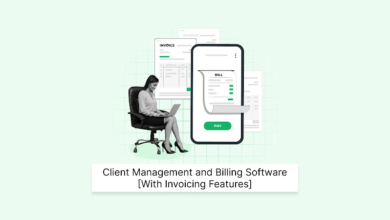Real-World Applications of Business Analytics in Various Industries

Business analytics has become a cornerstone of modern decision-making, enabling organisations to harness the power of data to improve operations, increase efficiency, and drive growth. This article explores the real-world applications of business analytics across various industries, demonstrating how data-driven strategies are transforming the way businesses operate and compete.
Healthcare
In the healthcare industry, business analytics plays a crucial role in improving patient outcomes, reducing costs, and enhancing operational efficiency. By analysing patient data, healthcare providers can identify trends and patterns that inform treatment plans and preventive care strategies. For example, predictive analytics can help in forecasting patient admissions, optimising staff schedules, and managing inventory of medical supplies. Additionally, analytics can identify high-risk patients who may benefit from proactive interventions, thereby improving overall care quality and reducing hospital readmissions.
Finance
The finance industry relies heavily on business analytics to manage risk, detect fraud, and optimise investment strategies. Financial institutions use predictive modelling to assess credit risk, enabling them to make more informed lending decisions. Fraud detection algorithms analyse transaction data in real-time to identify unusual patterns and flag potentially fraudulent activities. Furthermore, investment firms leverage analytics to develop sophisticated trading algorithms and portfolio management strategies, enhancing their ability to generate returns while managing risk.
Retail
In the retail sector, business analytics is essential for understanding customer behaviour, optimising inventory, and personalising marketing efforts. Retailers use data analytics to track sales trends, manage stock levels, and predict demand for various products. By analysing customer purchase histories and preferences, companies can create targeted marketing campaigns and recommend products that align with individual customer interests. This personalised approach not only increases customer satisfaction but also drives sales and loyalty.
Manufacturing
Manufacturers use business analytics to streamline production processes, improve quality control, and manage supply chains. By analysing data from sensors and machines on the production floor, companies can identify inefficiencies and implement corrective actions to enhance productivity. Predictive maintenance, powered by analytics, allows manufacturers to anticipate equipment failures and schedule maintenance proactively, reducing downtime and maintenance costs. Additionally, supply chain analytics helps optimise logistics, reduce lead times, and manage inventory more effectively.
Marketing
Marketing professionals leverage business analytics to measure campaign performance, understand customer segments, and optimise marketing strategies. By analysing data from various channels, including social media, email, and web traffic, marketers can determine which campaigns are most effective and adjust their tactics accordingly. Customer segmentation analysis allows marketers to identify distinct groups within their target audience and tailor their messaging to resonate with each segment. For those aspiring to excel in this field, pursuing a business analytics in USA to switch careers can provide the necessary skills and knowledge to leverage these applications effectively.
Transportation and Logistics
The transportation and logistics industry benefits from business analytics by optimising route planning, improving fleet management, and enhancing customer service. Analytics tools help companies analyse traffic patterns, weather conditions, and delivery schedules to determine the most efficient routes for their vehicles. This optimisation reduces fuel consumption, lowers operational costs, and ensures timely deliveries. In addition, analytics can monitor vehicle performance and driver behaviour, providing insights that improve safety and efficiency. Customer service is also enhanced through predictive analytics, which can forecast delivery times and proactively address potential delays.
Energy and Utilities
In the energy and utilities sector, business analytics supports grid management, demand forecasting, and energy efficiency initiatives. Utilities use analytics to monitor and manage energy consumption patterns, ensuring a stable and efficient supply of electricity. Predictive analytics helps in forecasting energy demand, allowing utilities to adjust their production and distribution strategies accordingly. Additionally, analytics-driven energy efficiency programs can identify areas where consumers can reduce their energy usage, promoting sustainability and cost savings.
Sports
Sports organisations use business analytics to enhance player performance, develop game strategies, and improve fan engagement. By analysing player statistics and performance data, coaches and analysts can identify strengths and weaknesses, tailor training programs, and make data-driven decisions about player selection and tactics. In addition, sports teams use fan data to personalise marketing efforts, improve the fan experience, and boost ticket sales. Analytics also plays a role in injury prevention, helping teams monitor player health and implement preventive measures.
Education
Educational institutions leverage business analytics to improve student outcomes, optimise resource allocation, and enhance administrative efficiency. By analysing student performance data, schools and universities can identify at-risk students and provide targeted interventions to support their success. Analytics also helps institutions manage their budgets more effectively, allocate resources where they are needed most, and streamline administrative processes. Additionally, educational analytics can inform curriculum development, ensuring that programs are aligned with industry needs and student interests.
Conclusion
Business analytics is revolutionising industries by enabling organisations to make data-driven decisions that enhance efficiency, reduce costs, and drive growth. From healthcare and finance to retail and education, the applications of business analytics are vast and varied. By leveraging the power of data, businesses can gain valuable insights, optimise their operations, and stay ahead of the competition. For those aspiring to play a pivotal role in this transformation, pursuing a university of arizona in business analytics can provide the advanced skills and comprehensive understanding needed to excel in this rapidly evolving field. As technology continues to advance, the importance of business analytics will only grow, making it an essential component of modern business strategy.



